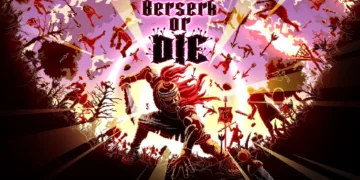Some ideas, like some men, refuse the quiet dignity of an ending. Dexter Morgan, a specter left for dead in the blood-christened snows of Iron Lake, draws breath once more. His survival is a narrative sleight of hand that asks not for belief, but for a kind of philosophical surrender to the premise that certain patterns of being are doomed to repeat. While he recovers from a son’s judgment—a point-blank absolution that failed to absolve—that very son, Harrison, seeks a fragile anonymity in the steel and glass canyons of New York City.
We are presented with a man twice-ghosted, first by his own design and now by a violent, failed exorcism. What purpose can a life have after its own conclusion has been written? What is left when the mask is gone and the man beneath it has been rejected? Dexter follows, drawn to the metropolis not merely by a fractured paternal instinct, but by the gravitational pull of the void he carries within him, a void that finds its only true echo in the familiar, terrible rituals of the hunt.
An Echo in the Marrow
The sins of the father are not so much visited upon the son as they are reborn in his flesh. In a sterile hotel room, Harrison Morgan performs a grim sacrament, a clumsy imitation of a liturgy he only half-remembers. He identifies a worthy vessel for his rage, enacts the ritual, and stands in the aftermath, a novice artist smeared with his medium. The cleanup is a frantic, imperfect affair—a stark contrast to the clean lines of his father’s work.
He is an echo, not a replica, and the dissonance of his actions calls forth the world’s attention in the form of city detectives, their measured steps a rhythm of impending consequence. The code, it seems, provides a reason, but it offers no immunity from the clumsiness of youth or the scrutiny of the law.
From the shadows, another ghost watches. Dexter, drawn by the irresistible pull of his own reflection, becomes what Harry was to him: a silent guide, a spectral mentor. He moves through the city’s periphery, a phantom tidying the edges of his son’s bloody work. But is this paternal protection? Or is it the desperate act of a creator polishing his flawed creation, ensuring the legacy of the Dark Passenger does not end in a clumsy arrest?
He seeks to guide Harrison’s hand, to teach him the terrible grace of the kill, yet this impulse to connect is poisoned by the very nature of their bond. To draw closer is to contaminate further; to protect his son is to mire him deeper in the family’s true and only inheritance.
Here lies the season’s central, aching question, a query into the nature of empathy itself. Harrison struggles in a profound solitude, grappling with an urge he believes is a monstrous singularity, unaware that its architect is watching from across the street. Dexter, in turn, looks upon his son and perhaps feels a flicker of something akin to love. Yet, one must wonder if a man so fundamentally hollowed out can ever truly feel for another, or if he is merely mesmerized by the sight of his own abyss mirrored in the eyes of his child. It may not be love that drives him, but a darker, more narcissistic need: to see his own terrible purpose perfected.
Where All the Monsters Meet
Every monster requires a fitting habitat. The sun-drenched artifice of Miami was a perfect counterpoint to Dexter’s hidden nature, a pastel mask for a bloody face. The frozen expanse of Iron Lake was a self-imposed purgatory, a landscape of quiet penance. New York, however, is something else entirely. It is a sprawling, indifferent ecosystem of granite and steam, a place of infinite anonymity where one man’s darkness is just a drop in a vast, roiling ocean of human striving.
Here, the apex predator must humble himself before the mundane gods of the metropolis. He learns the baffling scripture of parking signs, suffers the quiet judgment of a customer rating, and drives his anonymous UrCar through streets teeming with stories he will never know. In this concrete wilderness, he must once again gather the tools of his trade, performing the profane sacrament of re-establishing a kill room, a pocket of sterile order in a city of beautiful chaos.
His re-entry into the hunt is not born of civic duty, but of a deeply personal offense, a theological violation. A new killer stalks the city’s drivers, and the press has given him a name: The Dark Passenger. For Dexter, this is not mere imitation; it is a plagiarism of the soul. The name is his private catechism, the sacred term for the void within. That it could be appropriated by some lesser butcher is an insult that his very being cannot abide. This proprietary rage, this need to reclaim his own monstrous identity, sets him on a path. It is a hunt for a man, but it is also a quest to restore his own shattered sense of self.
This path does not lead to a simple confrontation, but to a far stranger destination. He discovers that New York’s darkness is not a solitary affair. It is organized. He stumbles into an exclusive salon for the damned, a secret society of killers curated by the obscenely wealthy Leon Prater, a man who collects murderers the way others collect art.
Watched over by a silent, predatory enforcer played by Uma Thurman, this club is a gallery of human atrocity, featuring a rotating cast of familiar faces twisted into grotesque new shapes. Dexter arrives seeking a singular rival, but what he finds is a congregation. He, the lone wolf, has discovered the existence of the pack. The hunter has been invited into the abattoir, though it is not yet clear if he is a guest or simply the next exhibit.
The Persistence of Ghosts
A man is never truly alone if he is haunted. Dexter’s consciousness remains a crowded space, occupied by the unwavering ghost of the code, Harry Morgan. This internal specter is more than memory; he is a psychic fixture, the internalized law that Dexter both reveres and resents. Harry’s return is not a surprise but a confirmation of a fundamental truth: the rules, once learned, can never be fully unheard. He is the voice of the original sin, the constant, whispering reminder of the architecture of Dexter’s soul, a moral compass forever pointing toward a monstrous true north.
While Harry haunts the mind, another ghost walks the earth. Angel Batista arrives not merely as a cop, but as a vessel for an old, unpaid debt. He carries the weight of LaGuerta’s ghost, her frantic, dismissed certainty now given terrifying new substance. His pursuit is not the abstract work of law enforcement; it is a personal pilgrimage for answers, a search for justice for friends lost to a deception he once called brotherhood.
For the first time, perhaps, the hunter becomes the hunted in a way that feels righteous. We watch Batista’s approach not with dread, but with a complex, divided loyalty. He is the past, demanding its due. Against these figures of deep history, the present offers its own cast. New city detectives move with a procedural blindness, their investigation into Harrison’s clumsy crime a surface-level disturbance unaware of the profound darkness it ripples.
They are the machinery of the now, grinding against secrets they cannot comprehend. And in the fabric of Dexter’s new, threadbare life, a small point of light appears: a landlord named Blessing, a man who offers friendship and a path into the mundane world of the gig economy. He is a potential anchor to normalcy, a fragile tether to a life of simple human connection that Dexter, by his very nature, is almost certainly destined to sever.
A Jest in the Abyss
There is a strange levity that settles in when a tragedy has gone on long enough to become a routine. Resurrection leans into this exhaustion, finding not despair, but a kind of gallows humor. The tone is one of macabre playfulness, a dance on the edge of the void. We are privy to Dexter’s wry bewilderment at the mundane horrors of city life, a quiet comedy that plays out in his mind.
We witness a detective who must drown out the world with the relentless optimism of The Bee Gees to perform her grim work. We watch Harrison, the prodigal son, commit an act of brutal finality while The Strokes sing of “Bad Decisions” on the soundtrack—a juxtaposition so on-the-nose it becomes a form of bleak poetry. This is not a story taking itself entirely seriously; it is a story that understands the inherent absurdity of its own persistence.
The show wears its long, convoluted history like a comfortable shroud. It is acutely aware of its own mythology, scattering callbacks and artifacts for the faithful while simultaneously acknowledging the creaks in its own narrative architecture. Dexter himself offers a wry, self-aware joke about the improbable nature of the ghosts who visit him in the premiere, a moment where the character seems to glance at the audience, sharing a brief, knowing smirk. It is an embrace of its own legacy, warts and all, a decision to stop running from its past and instead, to dance with it.
At the center of this strange performance is Michael C. Hall, who seems not just to be revisiting a character, but to be rediscovering the perverse joy within him. The weariness of the later seasons is gone, replaced by a renewed spark. He finds the subtle music in the character’s internal monologues again, the slight curl of the lip that transforms a monster into a compelling host. It is his performance that anchors the show’s tonal tightrope walk, allowing the narrative to swing from genuine pathos to high-camp villainy without shattering the illusion. He is the master of ceremonies for this grim, funny, and unexpectedly lively wake.
What Comes After the End
To undo a death is a profound narrative risk. The ending offered in the frozen quiet of Iron Lake was an ending of consequence, a period placed at the end of a long, bloody sentence. To erase it and write on is to posit that some stories cannot, or perhaps should not, conclude. Does this new chapter offer a deeper truth than the finality it revoked? Or is it merely a refusal to let the ghost rest, a testament to our own inability to let our monsters go quietly into the dark?
And so, where does this resurrected path lead? Toward what new horizon of darkness does Dexter Morgan now stumble? Is this a prolonged epilogue, a slow march toward a final, public revelation where the mask is torn away not by a bullet, but by the unblinking gaze of the world? Or is it something more cyclical, a confirmation that for some souls, there is no final chapter, only the same story, told again with different scenery?
The most pressing question, however, concerns the nature of this newfound purpose. Will this attempt to shepherd his son, this fragile, perhaps illusory, flicker of humanity, prove to be the one impulse he cannot control, the one blade he cannot dodge, the very thing that ensures his final, irrevocable ruin?
“Dexter: Resurrection” is a crime drama mystery TV series developed by Clyde Phillips, serving as a sequel to “Dexter: New Blood” and the original “Dexter” series. The show will premier on Friday, July 11, 2025, on Paramount+ with Showtime, releasing its first two episodes, followed by weekly episodes until the finale on September 5, 2025.
Full Credits
Director: Marcos Siega, Monica Raymund
Writers: Tanner Bean, Katrina Mathewson, Alexandra Franklin, Marc Muszynski, Clyde Phillips, Scott Reynolds, Tony Saltzman, Mary Leah Sutton, Nick Zayas, Jeff Lindsay
Producers and Executive Producers: Michael Amodio, Tanner Bean, Alexandra Franklin, Katrina Mathewson, Casey Grace Murtagh, Marc Muszynski, Scott Reynolds, Tony Saltzman, Mary Leah Sutton, Nick Zayas, Marcos Siega, Clyde Phillips, Lilly Burns, Michael C. Hall, Tony Hernandez
Cast: Michael C. Hall, Peter Dinklage, Uma Thurman, Jack Alcott, Ntare Guma Mbaho Mwine, Kadia Saraf, Dominic Fumusa, Emilia Suárez, David Zayas, James Remar, Krysten Ritter, Neil Patrick Harris, Marc Menchaca, Reese Antoinette, John Lithgow, Jimmy Smits, Eric Stonestreet, David Dastmalchian, Steve Schirripa, David Magidoff, Erik King
Cinematographers: Joe Collins, Radium Cheung, Ramsey Nickell
Composer: Pat Irwin
The Review
Dexter: Resurrection
Dexter: Resurrection resurrects its titular monster not for a simple encore, but for a darkly playful and self-aware exploration of legacy and repetition. While nullifying a potent ending is a high-stakes gamble, the series justifies its return through a revitalized performance from Michael C. Hall and a compellingly strange new chapter. It is a fascinating, if not entirely necessary, journey back into the abyss, proving that some ghosts are simply too alluring to remain buried.
PROS
- A revitalized and energetic lead performance from Michael C. Hall.
- A successful shift toward a playful, darkly comedic, and self-aware tone.
- An intriguing new ensemble of villains, bolstered by high-profile guest stars.
- A compelling exploration of the father-son dynamic and its existential questions.
CONS
- The central premise undermines the definitive and satisfying ending of Dexter: New Blood.
- Dexter's survival requires a significant suspension of disbelief.
- Relies on familiar narrative loops and character tropes from the series' history.
- Certain plot points and cameos can feel contrived.



















































